As I am a bit hyperactive and if I see a post that I like, I must try what it says. Otherwise I cannot sleep soundly. I've been watching the ELAV and FICO Post on how to install and configure Prosody.
Instant Messaging with Prosody on Debian Squeeze | Install an XMPP (Jabber) server with Prosody [Updated]
Well, I took on the task of configuring my own server and seeing how good it was.
First of all. You can see the configuration file that I have created and then I tell you what configurations it has.
http://paste.desdelinux.net/4774
My server has the following options.
- Create account from Pidgin.
- Send messages to all connected clients.
- List all connected people.
- Edit your own nickname (So that something like example@webeexample.com does not appear in the list).
- Edit local nickname.
Let's start
Create account from Pidgin.
To achieve this. You have to do two things. First of all make sure that in modules_enabled = { exist "Register", which is the module that allows you to create accounts from clients like Pidgin.
Second. Find where it says:
allow_registration = false;
and put it in
allow_registration = true;
Now we look at how to create the account in Pidgin.
In the main window. Where accounts are added in Pidgin.
Protocol XMMP
Username to create.
Domain created. And make sure that the "Create this new account on the server" Checkbox is enabled.
Now we are going has advanced.
Here we make sure that "server" is the correct address of where our server is located.
And it will ask us to accept the certificate from our server.
We confirm the data and he welcomes us.
At this point we already have our user account created. Now let's tune everything a bit.
Change nickname.
To change the nickname of the account and do not exit as follows when we go to chat.
As we see in the image. The Admin user is already configured. While the one we just created does not. And we don't have a profile on Google that changes this, right?
To edit it on Pidgin. We are going to accounts>desdelinux@medellinlibre.co>Set nickname
This will be the name that you will show to our contacts. The next problem is that when you are chatting. That name that we edit is not displayed. Show another very ugly one.
In the image we can see that the user "admin" is already edited. While our new user does not. So it looks quite annoying in chat. Although if you look at the name of the sale. It looks like we edit it.
So. We are going to Accounts>desdelinux@medellinlibre.co>Edit Account
Here we are going to find where it says Local Nickname and we edit it as we want. Additionally we can enable the option that says "Use this friend icon for this account" Thus we have an "avatar" that identifies us.
Much better now?.!
How to manage the chat from the pidgin.
The main thing is to make sure that our user is Admin. For this, in the configuration file we must make sure that our user is enabled in.
admins = {"admin@medellinlibre.co"}
And also in Modules this:
"announce";
Now from the Pidgin. We are going to Accounts> admin@medellinlibre.co> Send Announcement to Online Users
We edit the message and send it to all users.
As I have 6 accounts (Counting the Admin. That's why only 5 windows appear) All those windows come out and a message saying how many Online users exist at the moment.
Besides this option, Pidgin lets you do many other things. (As long as you are an Administrator)
- Delete users.
- See user password.
- Create users.
- Load modules.
- Remove modules.
- Among others…
Another option that I found very interesting is to create chat rooms. For this you must first enable the "muc" module in the configuration file. And then set the server rooms. It would be something like.
Component "conference.medellinlibre.co" "muc"
Then on the Pidgin we will File> Join a chat.
Here we are going to choose the user who will create the room. The name of the room. The server (Previously configured) The name with which we will enter the room and if we wish we can put a password.
Then if another user is going to enter the room. Just go to Tools> Room List
We give it Get list and we write the address of our server.
There you will see all the rooms that are created on that server. We just give you connect and go.
There are many other options that may escape me at the moment. It's just a matter of playing with the modules. On this page you will see the existing modules and how they can be configured. http://prosody.im/doc/modules
Regards.!


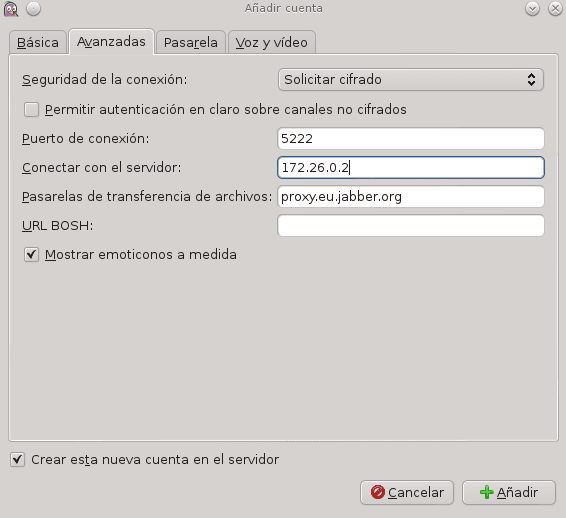
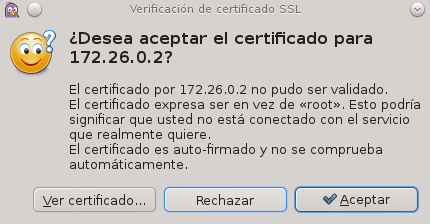


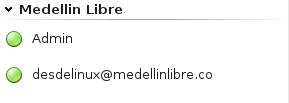
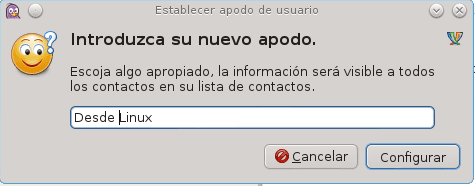
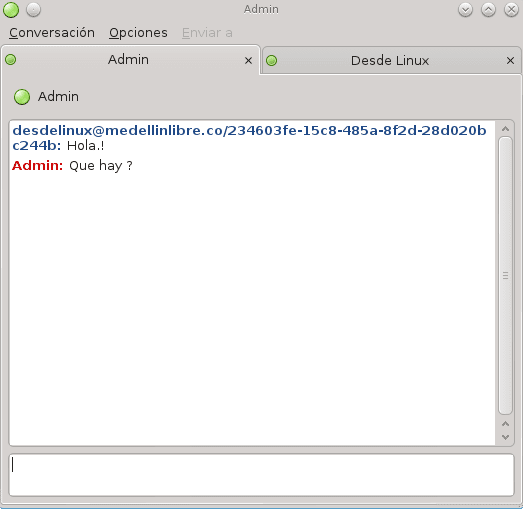

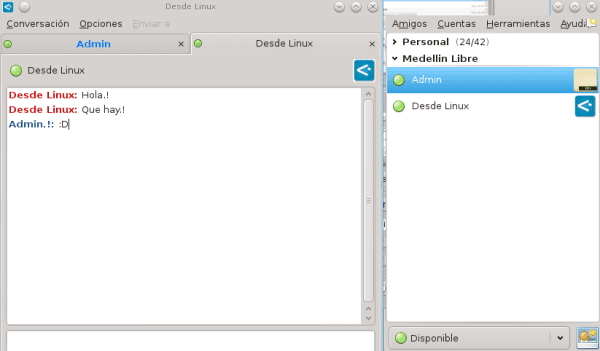
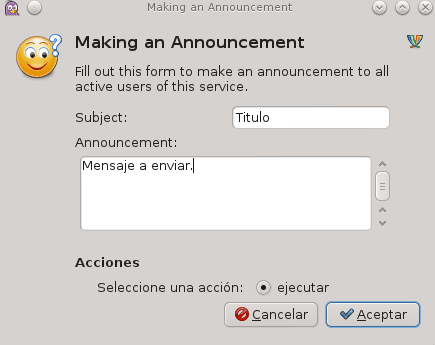
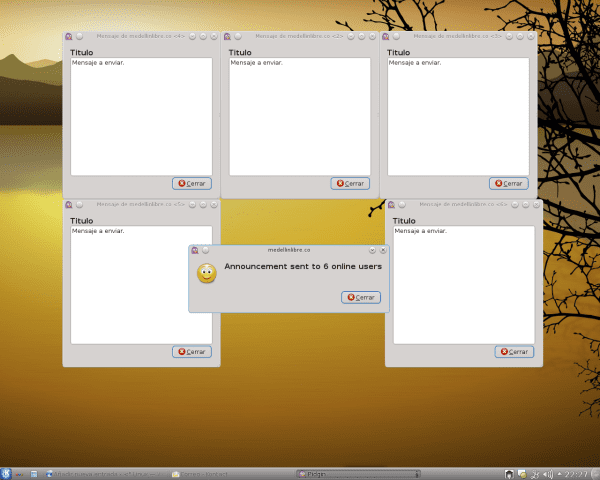
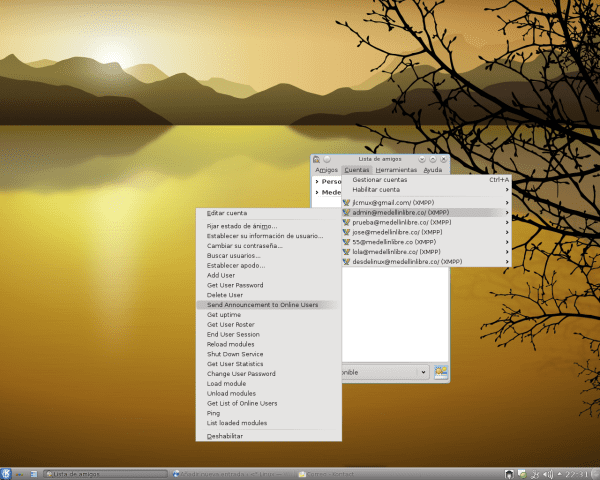
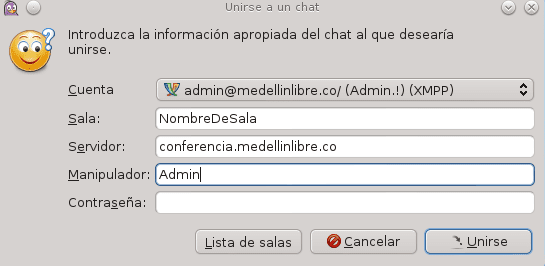
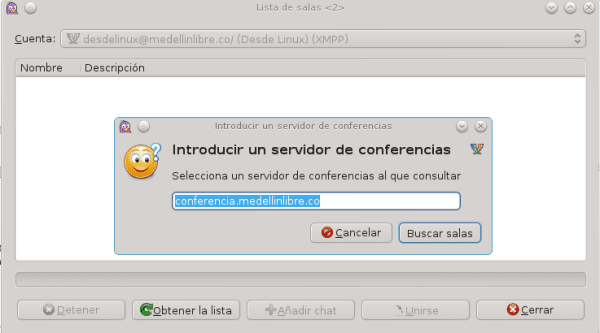
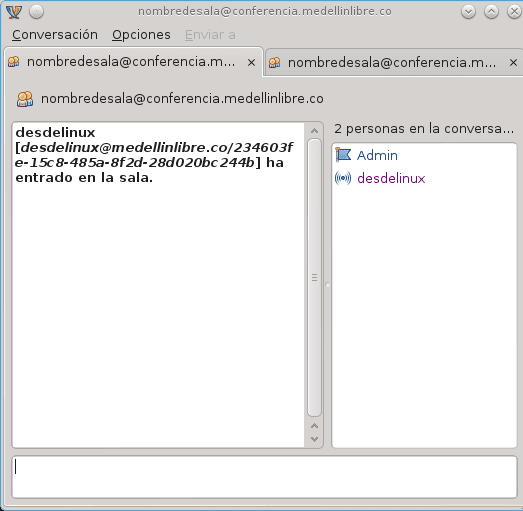
Like this, they are the types of articles that The Community appreciates! Congratulations @jicmux and Thank you very much! I ask permission from the Author and Elav to bring it to humanOS. What's more, I already downloaded it completely. :-). You will say.
Thanks Federico.
Well, I think that joining the 3 posts would be the most convenient to have something much more complete. Of course.
Thank you!!! I already compact it and send it to Kceres. Uniting the three articles in one for download seems like a good idea to me. By the way Jlcmux, you don't comment on the consumption of resources on the server, do you?
No. But I didn't really even take on the task since it is almost imperceptible. At least with a moderate number of users. To all of these. Because our own Prosody server does not exist @desdelinux.net? 🙁 😀
Well of course you can ..
How is it that you can see the passwords of the users? Regardless of whether you are an admin or not, it seems to me that the passwords should not be saved as is but passed through a one-way encryptor. Security things. Or did you leave them plain text just to test the server?
By default the server is configured authentication = "internal_plain"
But if we want to encrypt we just put authentication = "internal_hashed". That depends on the intentions of the Admin. I guess hahaha
Oh, okay. I was already saying 😀
Challenge Accepted!
Hello, I have seen in the image that the environment is KDE. Pidgin is from Gnome right? I was already surprised when I saw the previous Elav contribution that also included Pidgin and not Kopete. Do you prefer it to Kopete even if your choice is the KDE environment?
And thanks for the contribution.
Pidgin is not from GNOME, but uses Gtk libraries. From GNOME is Empathy. I prefer Pidgin to Kopete not only because it is so much better when it comes to multi-accounts, but it provides options that Kopete does not.
In my default distro with GNOME Pidgin has always come, hence my confusion, and in KDE with Kopete. As for whether it is from GNOME, it has been a lack of technicality on my part since when I said that it is from GNOME I meant that it uses Gtk libraries, which I see is not the same.
Thank you very much.
Don't you think it will be easier to log in with your Gtalk account or install Skype and that's it? You even have video calls and hangouts. Get over that Pidgin
Of course, and your calls and conversations remain on a server to be read and used "God knows who."
Now I understand why there are few people who are using the Ekiga (fed up with GTK + in Windows and it is not attached like in UGet).
Well this is closely related to the latest news:
http://www.elmundo.es/america/2013/06/07/estados_unidos/1370577062.html?cid=GNEW970103&google_editors_picks=true
I no longer know what to use to not be controlled! Google, Skype, Facebook… .uffffffffff
If you look closely, the example is from Medellín Libre. I guess the idea of this is to have an official chat system for the Mesh network.
In case you do not know what Mesh Networks are, they are something like "small Internets" that in general are made to be self-sufficient and community ... so in theory, it should not be necessary to have a connection with servers outside the community (Google can be in many parts of the world, not in the same city ... sometimes). In this type of network, servers are usually placed with, for example, copies of Wikipedia.
By the way, @jicmux, when are you going to finish the page? Something that I would like to see is a map where the antennas are, just like they do in Bogotá
heh. If the page will come out later when we have all the very nice documentation of how everything was installed. From how we did to reach a community and tell them. Come on, let's install some antennas. How people were educated. How everything was physically installed. And at the software level. It will be very cool.
As ErunamoJAZZ says. These types of servers are designed to work in mesh-type LAN networks for example. That they don't have internet access as such
I looked for turpial as an alternative to pidgin, I don't really regret it.
I'm not convinced by being able to see other people's passwords.
The opposite could not be done.